#josef breuer
Text
Isolation exists only in isolation. Once shared, it evaporates.
Josef Breuer, Sayings.
#philosophy tumblr#philoblr#psychology#psychoanalysis#psychologist#Josef Breuer#existentialism#isolation#society#pathology#dark academia#life quotes
8 notes
·
View notes
Text
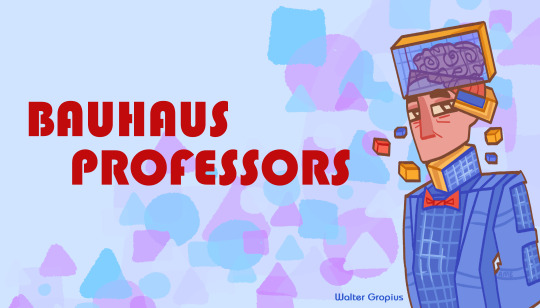
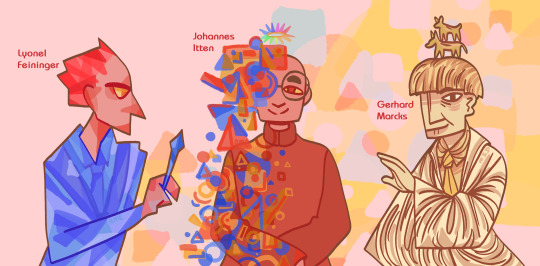


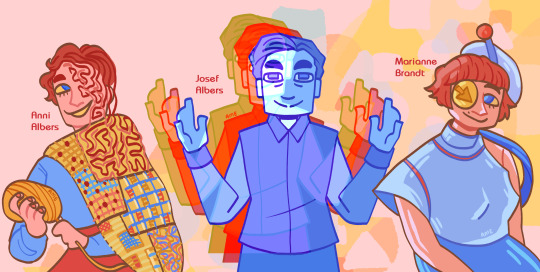

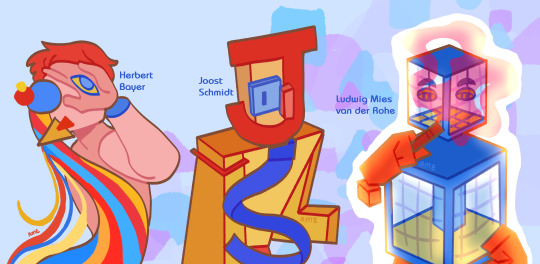

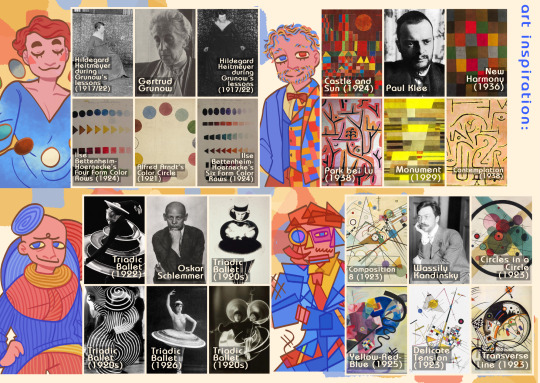
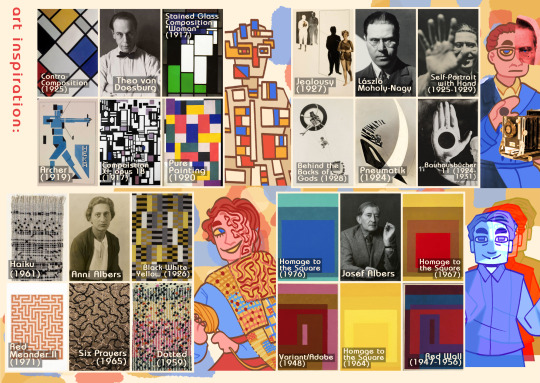


some art of professors (and just. artists) from the bauhaus inspired by their own works!!! i did this for a school project and am really proud of it <333
u can check the references on the bottom for their popular works!!
(rb's appreciated!!)
#bauhaus#walter gropius#lyonel feininger#johannes itten#gerhard marcks#gertrud grunaw#paul klee#oskar schlemmer#wassily kandinsky#theo van doesburg#laszlo moholy-nagy#anni albers#josef albers#marianne brandt#gunta stolzl#gertrud arndt#marcel breuer#herbert bayer#joost schmidt#ludwig mies van der rohe#art#ame art
278 notes
·
View notes
Text
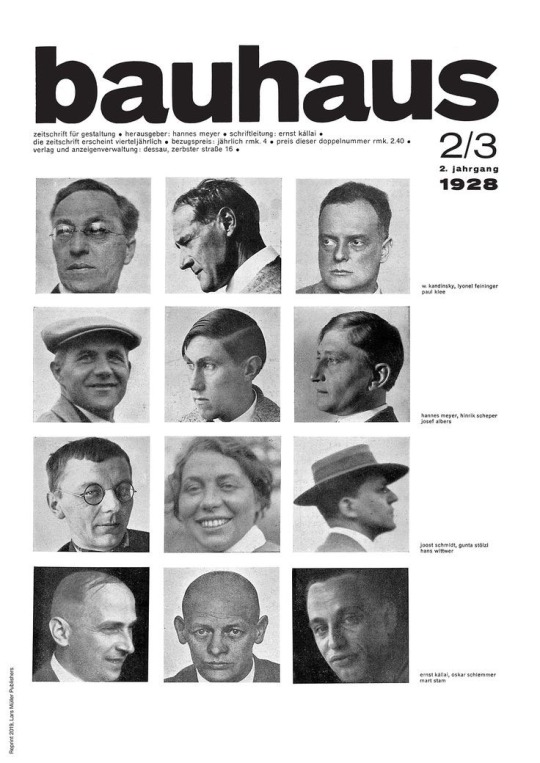








Bauhaus Furniture (that keeps me awake at night)
Thonet S 32 V Cantilever Chair - Marcel Breuer - 1920s
Bauhaus Rug No. 1 - Gertrud Arndt -1924
Tubular Steel Chairs - Marcel Breuer - 1928
Bauhaus Chess Set - Josef Hartwig - 1923
Bauhaus Wilhelm Wagenfeld Table Lamp WG 24 - Wilhelm Wagenfeld - 1924
Wassily Chair Model B3 - Marcel Breuer - 1925
#marcel breuer#bauhaus#mies van der rohe#walter gropius#modern furniture#modern chairs#Bauhaus furniture#Bauhaus chairs#josef hartwig#Robert selzak#wilhelm wagenfeld#thonet#Bauhaus design#chair design#mid modern century#mcm#cesca#modernism#modern architecture#modern art
22 notes
·
View notes
Text











Chairs
1,000 Masterpieces of Modern Design
The new and updated selection from Charlotte & Peter Fiell
Welbeck Publ., London 2023, 784 pages, 17,5 x 22,7 cm, ISBN 9781802791006
euro 39,00
email if you want to buy [email protected]
This updated edition features designs from 1800 up to present day, and features the biggest names in furniture design, art, architecture and craft. Each entry is illustrated with full colour photography and accompanied by text detailing the materials and background of the chair.
From Alvar Aalto to Marco Zanuso, Chairs introduces over 1,000 groundbreaking innovations by the world's greatest designers. Tracing the history of the modern chair from 1800 to the present day, revered experts Charlotte and Peter Fiell comprehensively guide you through the fascinating world of seating design - from the functional office chair to the limited edition art piece. With more than 1,000 exquisite images alongside fascinating insights into the conception, design and production of these masterpieces, this definitive collection includes design classics such as Josef Hoffmann's Sitzmaschine, Robin Day's Polyprop and computer-generated masterworks by Zhang Zhoujie, amongst many more.
28/06/23
orders to: [email protected]
ordini a: [email protected]
twitter:@fashionbooksmi
instagram: fashionbooksmilano
designbooksmilano
tumblr: fashionbooksmilano
designbooksmilano
#chairs#designs from 1800 to present day#greatest designers#seating design#Josef Hoffmann#Mackintosh#Marcel Breuer#Gio Ponti#Alvar Aalto#Verner Panton#Gae Aulenti#Cini Boeri#Vico Magistretti#Osvaldo Borsani#chairs design#design books#designbooksmilano#fashionbooksmilano
29 notes
·
View notes
Text
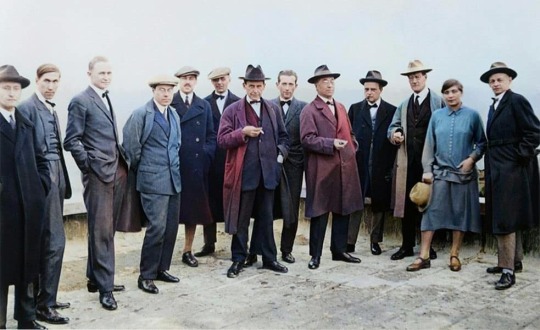
The Masters on the Roof of the #Bauhaus Studio Building in #Dessau, during the opening of the Bauhaus: Josef Albers, Hinnerk Scheper, Georg Muche, László Moholy-Nagy, Herbert Bayer, Joost Schmidt, Walter Gropius, Marcel Breuer, Wassily Kandinsky, Paul Klee, Lyonel Feininger, Gunta Stölzl, Oskar Schlemmer. Photo: unknown, 1926. (AI Colorize)
#bauhaus#josef albers#Hinnerk Scheper#Georg Muche#László Moholy-Nagy#Herbert Bayer#Joost Schmidt#Walter Gropius#Marcel Breuer#Wassily Kandinsky#Paul Klee#Lyonel Feininger#Gunta Stölzl#Oskar Schlemme#1926#masters
29 notes
·
View notes
Note
Any favourite reads? Not specifically pertaining to books, but any general text based medium?


What avid inquiries into my preferences of literature. I suppose it's only polite to indulge with a response just as enthusiastic. Brace yourselves for, as a certain Strider would say, a shit ton of text.
Approximately two-thirds of the work I peruse do not have titles. I am inclined to believe they are more akin to a literary fever dream than anything I, or any other currently existing mortal soul, have the capacity to fully comprehend; much less describe. I will, however, in good faith, suggest some texts that I consider widely-known.
I particularly enjoy Studies on Hysteria by Freud, though I suppose I more-so enjoy exploring the founding text from which he would later establish his psychoanalytic kingdom. And in any case, acknowledging just how frequently he injected his patients with copious dosages of morphine deserves further recognition, don't you think? I have a re-interpretive historical text in the works regarding his potentially homoerotic relationship with physician Josef Breuer, and studying the paper directly has been of instrumental significance.
Other takes I've greatly enjoyed include The Meaning of Truth by William James; The Yellow Wallpaper by Charlotte Perkins Gilman; The Collected Poems by Sylvia Plath (especially the pieces Recantation, 1956, and Monologue at 3 a.m.); and Aye, and Gomorrah. by Samuel R. Delaney.
Oh my, and how could I forget. The all-time classic, the delightful vixen of this ungodly hour, the pinnacle of modern creativity that Shakespeare can only weep at the mention of.
The Twilight Saga by Stephanie Myers.
#rose lalonde#askflightybroad#hom3stuck#homestuck#homestuck ask blog#hs#ask blog#ask rose lalonde#askblog#homestuck askblog
27 notes
·
View notes
Text
Final words on the history of the word endogenic
Here’s me making another post, just in case my response to the other post gets... “lost”
Do me a favour and google:
Freud "endogen" meaning
Just exactly like that
And then I want you to use that as a basis for starting some of your own research
"Endogenen" is the actual German word. Here's Freud using it in one of his books, countering the claim that he never used the word himself.

Deutsches Textarchiv – Breuer, Josef und Freud, Sigmund: Studien über Hysterie. Leipzig u. a., 1895.deutschestextarchiv.de
Remember, guys. The original quote used seems to be a direct translation of Freud's words.
This is actually, for realsies, the last post I’m going to make about this
Thank you all for sticking through it
Endogenen translates to endogenic.
20 notes
·
View notes
Text
“Sembra a prima vista strano che esperienze da gran tempo passate debbano agire cosí intensamente, e che i ricordi di esse non soggiacciano al logoramento cui pure vediamo sottostare tutti i nostri ricordi.”
Josef Breuer & Sigmund Freud - Studi sull’isteria
#breuer#freud#sigmund freud#studi sull’isteria#libri#quotes#books#citazioni#book#psychology#psicologia#psychoanalysis
3 notes
·
View notes
Text
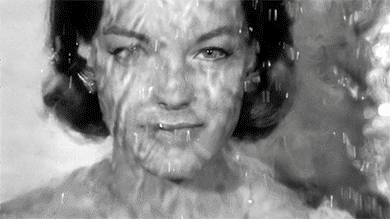
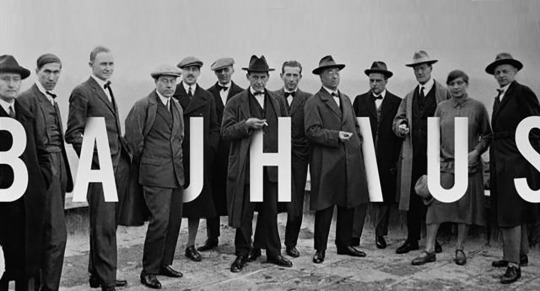
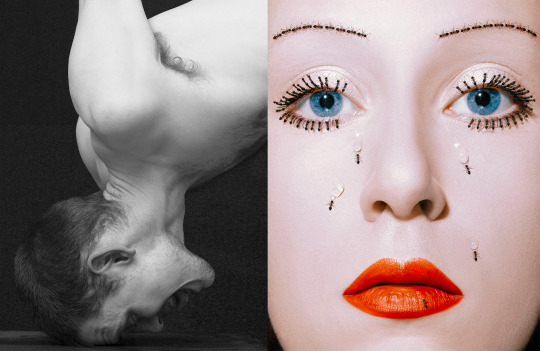
Bauhaus a Dessau (1926): da sinistra a destra: Josef Albers, Hinnerk Scheper, Georg Muche, László Moholy-Nagy, Herbert Bayer, Joost Schmidt, Walter Gropius, Marcel Breuer, Wassily Kandinsky, Paul Klee, Lyonel Feininger, Gunta Stölzl e Oskar Schlemmer.
4 notes
·
View notes
Text

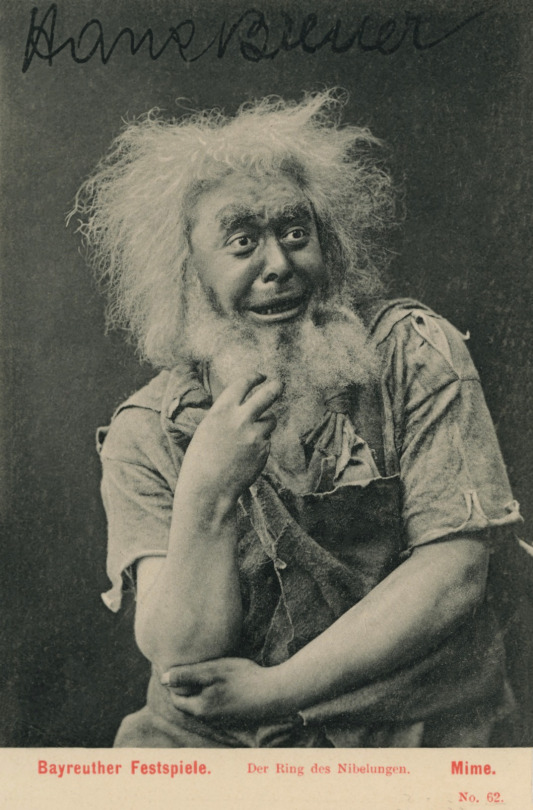


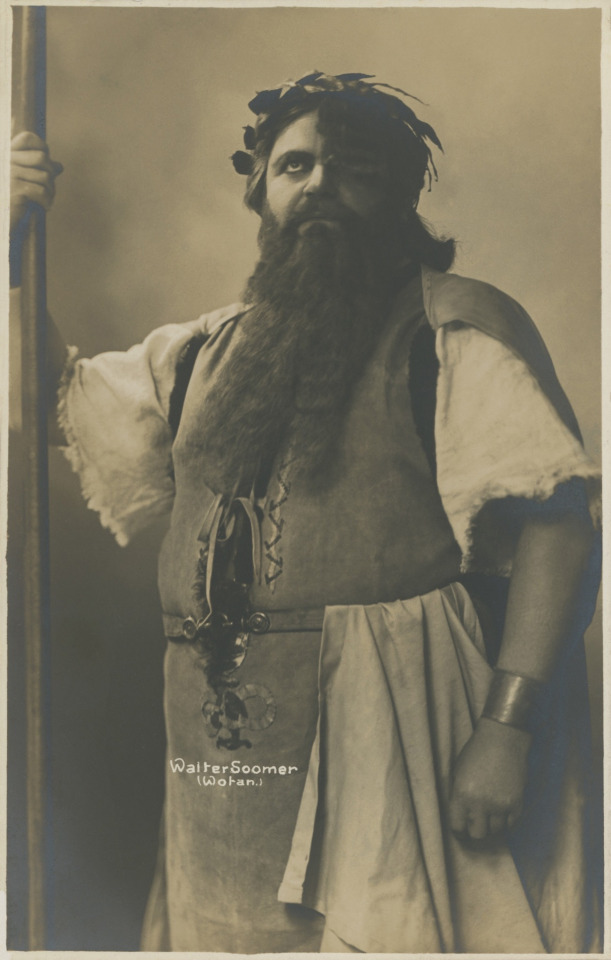

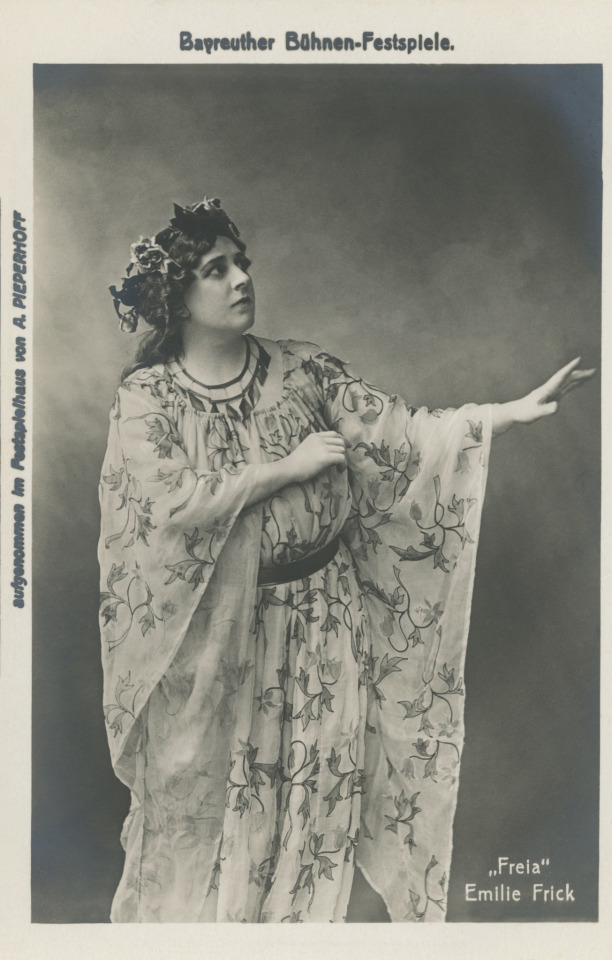


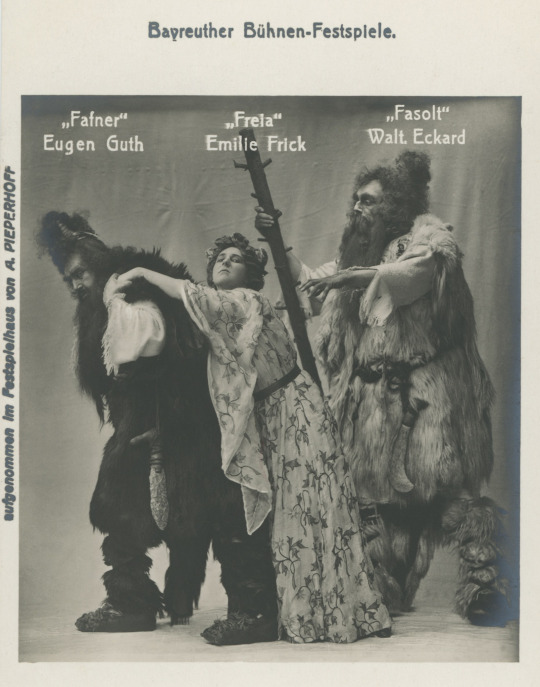

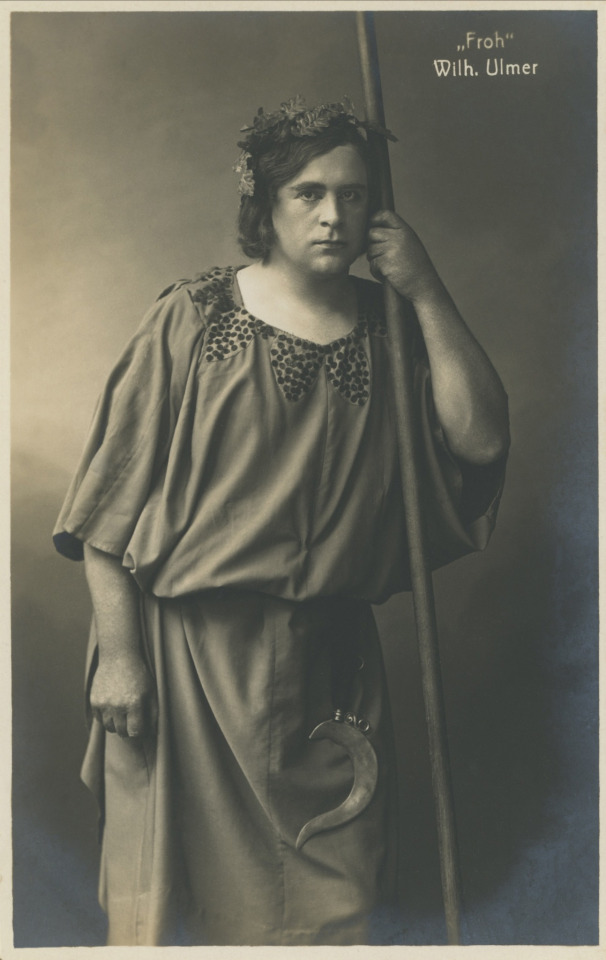



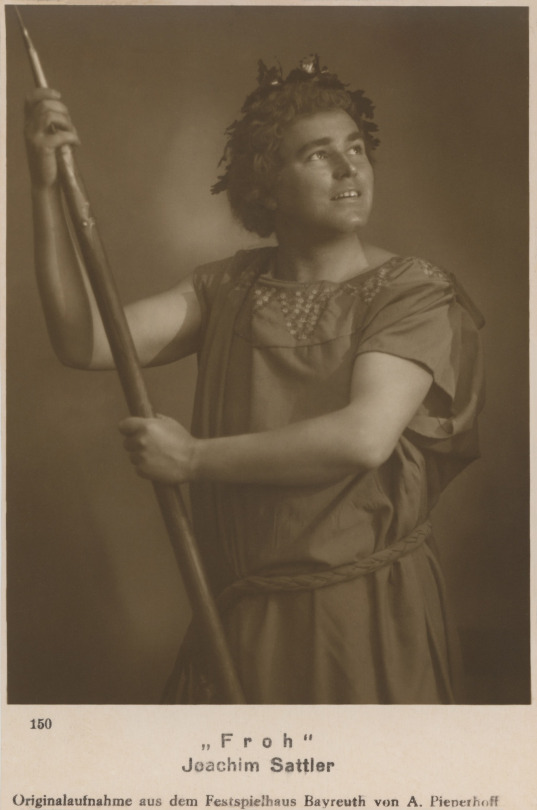

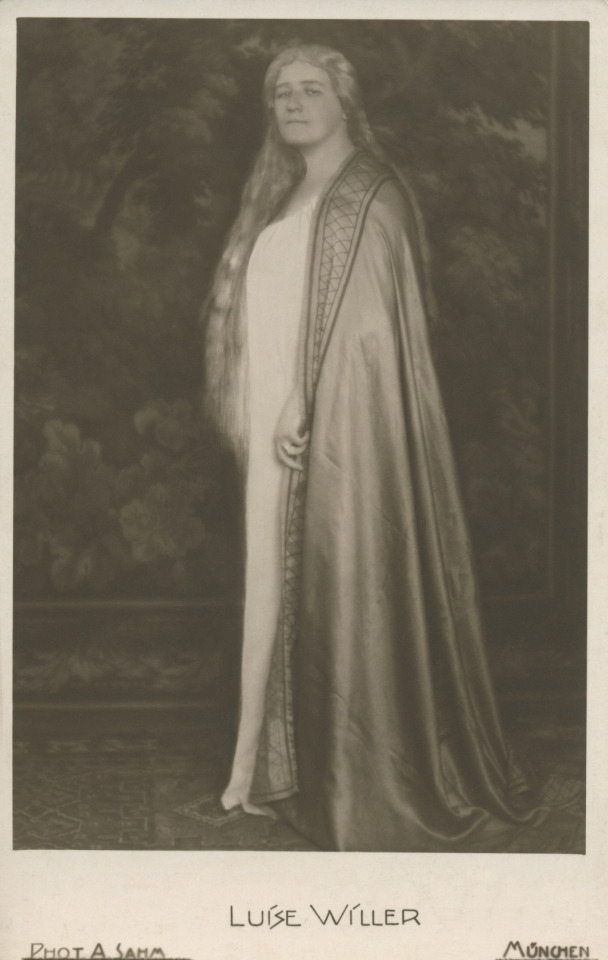

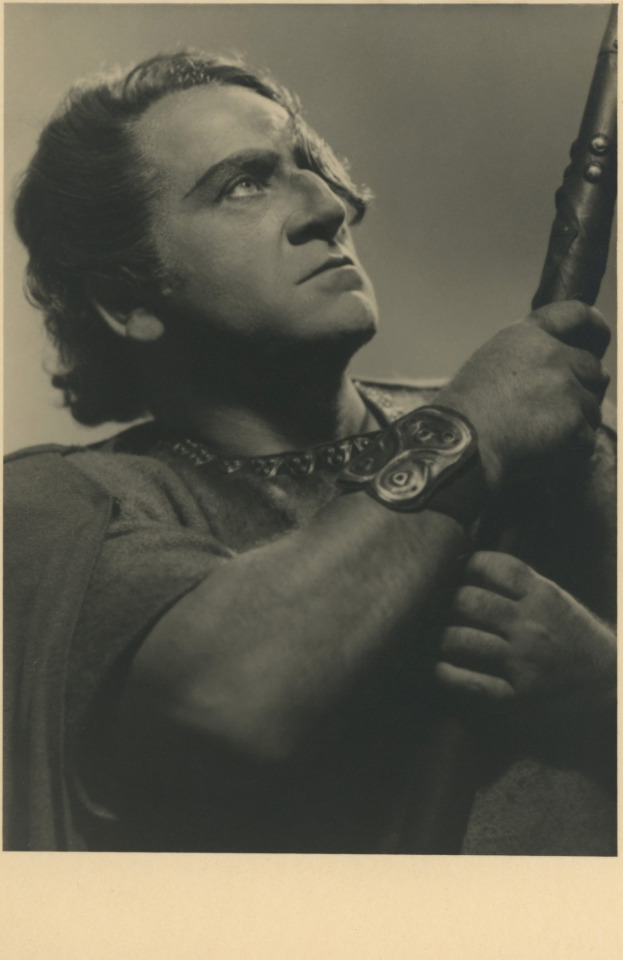
"Wallala! Lalaleia! Leialalei!"
DAS RHEINGOLD - R. Wagner
Ernst Wachter as Fasolt, Marion Weed as Freia and Johannes Elmblad as Fafner; Bayreuth, 1897
Hans Breuer as Mime; Bayreuth, 1896-1914
Eric Colsaux as Froh; Brussels, ?
Desider Zádor as Alberich; Berlin, 1907
Walter Soomer as Wotan; Bayreuth, 1914
Agnes Hansson as Fricka; Bayreuth, 1914
Emilie Frick as Freia; Bayreuth, 1914
Eugen Guth as Fafner; Bayreuth, 1914
Walter Eckard as Fasolt; Bayreuth, 1914
Eugen Guth as Fafner, Emilie Frick as Freia and Walter Eckard as Fasolt; Bayreuth, 1914
Theodor Scheidl as Donner; Bayreuth, 1914
Willy Ulmer as Froh; Bayreuth, 1914
Gotthelf Pistor as Froh; Bayreuth, 1925
Lois Odo Böck as Donner; Bayreuth, 1928
Walter Eckard as Fafner; Bayreuth, 1928
Joachim Sattler as Froh; Bayreuth, 1930
Georg von Tschurtschenthaler as Donner; Bayreuth, 1931-1931
Luise Willer as Fricka; Munich, ?
Ria Focke as Erda; Bayreuth, 1939
Josef Herrmann as Wotan; ?, ?
#classical music#opera#music history#bel canto#composer#classical composer#aria#classical studies#maestro#chest voice#Das Rheingold#The Rhinegold#epic#Musikdrama#Richard Wagner#Der Ring des Nibelungen#The Ring of the Nibelung#Bayreuth Festspielhaus#Ring cycle#Bayreuth Festival#Nordic legends#German legends#classical musician#classical musicians#classical history#history of music#historian of music#opera history#musician#musicians
3 notes
·
View notes
Quote
“La ciencia moderna aún no ha producido un medicamento tranquilizador tan eficaz como lo son unas pocas palabras bondadosas”
Sigmund Freud
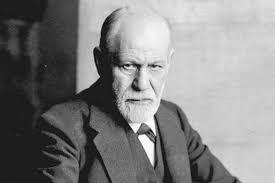
Fue un médico y neurólogo austriaco nacido en Pribor hoy República Checa en mayo de 1856. Se le considera el padre del psicoanálisis y una de las mayores figuras intelectuales del siglo XX.
Nació en el seno de una familia judía, y aunque su nombre aparece como Sigismund en su acta de nacimiento, y con un segundo nombre hebreo de Salomón, nunca usó su segundo nombre y comenzó a firmar como Sigmund hacia 1875. Tenía 6 hermanos (5 mujeres y un varón) y dos hermanastros de un matrimonio previo de su padre.
En 1860, cuando tenía tres años, sus padres se mudaron a Viena, buscando la prosperidad perdida en su negocio de lanas.
En 1881 se graduó como médico y fue discípulo en el Hospital de Viena de Theodore Meynert, uno de los más grandes neuroanatomistas y psiquiatras de Europa. Como investigador médico, fue Sigmund uno de los primeros médicos en recomendar el uso terapéutico de la cocaína como estimulante y analgésico.
En 1886 se casó y abrió una clínica privada especializada en trastornos nerviosos. Comenzó su práctica para tratar la neurosis como la histeria, utilizando la hipnosis y el método catártico que su mentor Josef Breuer había aplicado con Bertha Pappenheim mejor conocida como Anna O.
En 1899, publicó lo que se considera su obra más importante e influyente, “La interpretación de los sueños” inaugurando con ello una nueva disciplina y un nuevo modo de entender la mente humana, “el psicoanálisis”, misma que fue incomprendida y rechazada en sus inicios. No fue sino hasta 1909 que una universidad le otorgó a Freud un reconocimiento oficial a través de un doctorado Honoris causa y en donde iniciaría la divulgación del psicoanálisis en Estados Unidos.
Víctima de la persecución judía por la Alemania nazi, en la que cuatro de sus hermanas murieran en campos de concentración, Sigmund abandonó Viena y se refugió en Londres Inglaterra. En Alemania, por su condición de judío y por haber sido fundador de la escuela psicoanalítica, sus libros fueron quemados públicamente, y fue considerado enemigo del Tercer Reich.
Freud innovó en dos campos. Desarrolló por un lado una teoría de la mente y de la conducta humana, y a la par, una técnica terapéutica para ayudar a personas con afecciones psíquicas, pero probablemente una de las contribuciones más significativas de su trabajo, fue la de intentar darle un estatus científico al concepto del inconsciente, en donde sus conceptos de “inconsciente”, “deseo inconsciente” y “represión”, fueron revolucionarios.
El modelo de la mente de Freud se considera a menudo un desafío para la filosofía moderna.
Freud murió por sedación terminal en septiembre de 1939 a la edad de 83 años, incapaz de soportar los terribles dolores que le producían su cáncer en el diagnosticado desde 1923.
Fuente: Wikipedia
#frases#frases de reflexion#Sigmund Freud#psicoanálisis#psicoanalista#mente#ciencia#citas de reflexion#notas del alma
21 notes
·
View notes
Text
El Psicoanálisis y el ser humano
Enfoque del Psicoanálisis
Es una corriente de la psicología que se basa en las teorías y conceptos desarrollados por Sigmund Freud.
El enfoque principal del psicoanálisis es explorar el inconsciente y cómo los procesos mentales inconscientes influyen en el comportamiento y la personalidad de una persona. Según el psicoanálisis, los conflictos y las tensiones inconscientes pueden surgir de experiencias tempranas en la infancia y pueden afectar la forma en que una persona se relaciona con el mundo y consigo misma.

El objetivo del psicoanálisis es ayudar a las personas a desentrañar estos conflictos y tensiones, y así lograr un mayor autoconocimiento y bienestar emocional.

El psicoanálisis utiliza técnicas como la asociación libre, la interpretación de los sueños y la transferencia para explorar los pensamientos y emociones inconscientes de una persona. A través de la terapia psicoanalítica, se busca que el individuo tome conciencia de los patrones y procesos inconscientes que influyen en su vida y, de esta manera, pueda resolver conflictos y mejorar su bienestar psicológico.
A continuación podemos ver un corto video explicativo:
¿Qué es el Psicoanálisis? - YouTube

Tomado de YouTube**
Es importante destacar que la psicología psicoanalítica ha sido objeto de debate y críticas a lo largo de los años, y existen otras corrientes de la psicología que ofrecen diferentes enfoques y perspectivas sobre la mente y el comportamiento humano.

Sigmund Freud (1856-1939) fue un neurólogo austriaco y el fundador del psicoanálisis, un método para tratar trastornos psicológicos basado en la comprensión del pensamiento inconsciente. El trabajo de Freud ha tenido un impacto profundo en nuestra comprensión del comportamiento humano, y sus teorías siguen siendo influyentes en muchos campos, incluidos la psicología, la psiquiatría, la literatura y la antropología.

Carrera temprana
Después de graduarse de la escuela de medicina, Freud trabajó como neurólogo en el Hospital General de Viena. Estaba particularmente interesado en el estudio de la histeria, un trastorno neurológico que se caracterizaba por una variedad de síntomas físicos y emocionales.
En 1885, Freud comenzó a colaborar con Josef Breuer, un médico vienés que había estado utilizando la hipnosis para tratar la histeria. Breuer había descubierto que al hablar con los pacientes sobre sus experiencias traumáticas, podía ayudarlos a aliviar sus síntomas. Este método de tratamiento, que Breuer llamó "catarsis", proporcionó a Freud la inspiración para su propio método de tratamiento, al que llamó "psicoanálisis".
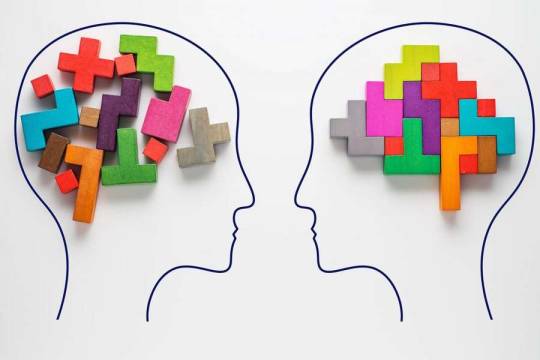
Influencia en la psicología
El trabajo de Freud ha tenido un impacto profundo en nuestra comprensión del comportamiento humano. Sus teorías han sido influyentes en muchos campos, incluidos la psicología, la psiquiatría, la literatura y la antropología. Algunas de las contribuciones más importantes que Freud hizo a la psicología incluyen las siguientes:
Desarrolló un método de tratamiento para trastornos psicológicos que todavía se utiliza hoy en día.
Desarrolló una teoría del desarrollo humano que sigue siendo influyente en muchos campos.
Realizó importantes contribuciones a nuestra comprensión de la mente inconsciente.
Investigación del psicoanálisis
Freud desde los inicios de su investigación clínica planteó la existencia indisociable entre él y sus pacientes, inclusive, refiere haber valorado en sus indagaciones observaciones sobre sí mismo (Masson, 1985, p. 545). Freud a lo largo de toda su obra formuló de manera insistente un conjunto de reflexiones y discusiones con el propósito de otorgarle un cuerpo teórico al efecto derivado de la relación médico-paciente, refirió que era imposible deslindarse de sus efectos al tiempo de ponerse en marcha la pesquisa del inconsciente (Barcellos & Magdaleno, 2012). Esta relación que más tarde establecería como transferencia tiene por cualidad escapar a cualquier operación racional. Freud fue radical al proponer a la transferencia dentro de la investigación psicoanalítica como el punto nodal para poner en acto el saber inconsciente y acceder a él.
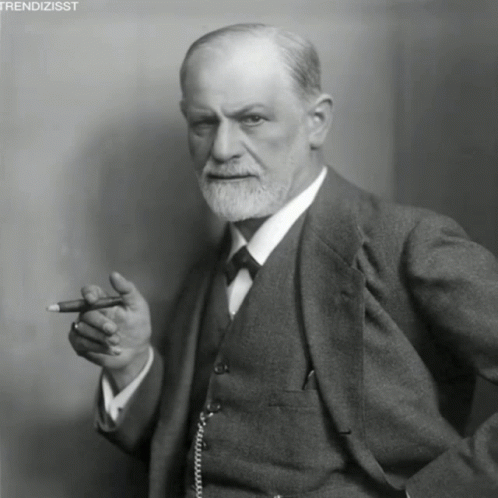
Los objetivos fundamentales de un tratamiento psicoanalítico son comprender los funcionamientos mentales del paciente tratando de darle significado, ayudarlo a comprender estos funcionamientos a través del análisis de sus patrones de relación, los modos de vivirse a sí mismo, de relacionarse con los demás.
El psicoanálisis es un método de tratamiento psicológico que se utiliza para tratar una amplia gama de trastornos psicológicos, incluyendo:
Trastornos de ansiedad: como la ansiedad generalizada, el trastorno de pánico y el trastorno de estrés postraumático.

Trastornos del estado de ánimo: como la depresión y el trastorno bipolar.

Trastornos de la personalidad: como el trastorno límite de la personalidad y el trastorno narcisista de la personalidad.
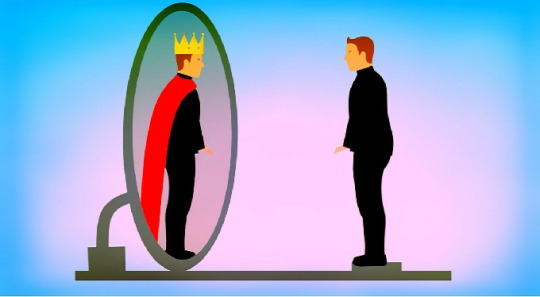
Trastornos sexuales: como la disfunción eréctil, la eyaculación precoz y el trastorno de deseo sexual hipoactivo.
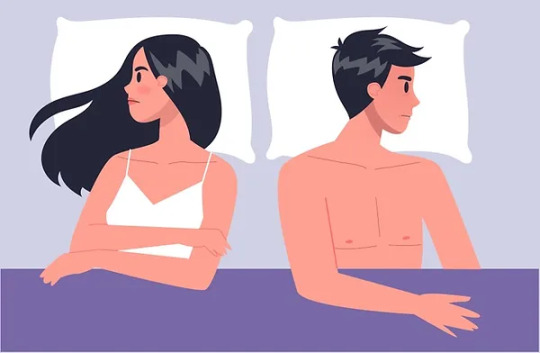
Trastornos del sueño: como el insomnio y la apnea del sueño.
Problemas de relación: como los problemas matrimoniales y los problemas en el lugar de trabajo.

PSICOANALISIS; Se refiere más exactamente al método de investigación e intervención que desarrollo de Freud y utilizo en el trabajo con sus pacientes
Tiene 5 teorías especificas
TOPOGRAFICA O PRIMERA TOPICA
ESTRUCTURAL
PULSIONAL
DESARROLLO PSICOSEXUAL
MECANISMOS DE DEFENSA
TOPOGRAFICA: En esta teoría Freud plantea que los procesos psíquicos ocurren en 3 instancias o estratos virtuales , consciente , preconsciente , inconsciente :
*CONSCIENTE: Experiencia en estado de vigilia, todo lo que se experimenta a voluntad.
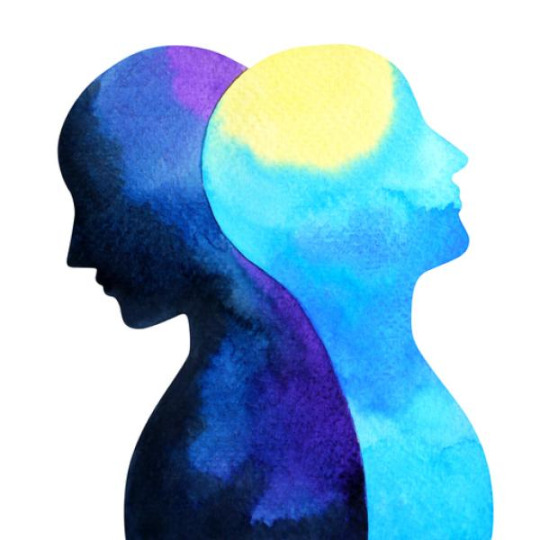
*PRECONSCIENTE: Es un intermedio entre lo consciente y lo inconsciente, en este nivel s encuentran los pensamientos y sentimientos los cuales no están en la conciencia inmediata de la persona pero que pueden ser traídos de forma rápida cuando se necesita. Los pensamientos contenidos en este estado son confusos ya que provienen de deformaciones o trasformaciones de contenidos inconscientes que buscan llegar a la conciencia; sueños, recuerdos imprecisos , actos fallidos .

*INCONSCIENTE: En este nivel se encuentran los sueños, pensamientos, deseos que están fuera de la conciencia de las personas , Según Freud esta parte es la mas importante de la mente humana ya que es el deposito de los deseos reprimidos , hechos traumáticos , los contenidos del inconsciente pueden influir en el comportamiento de las personas de manera significativa
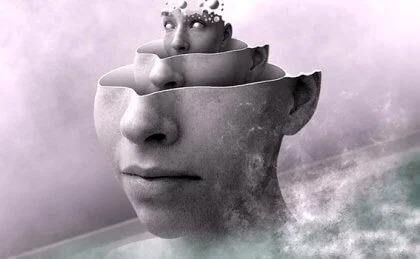
TEORIA ESTRUCTURAL
Esta teoría nos habla del Ello , Yo , Súper yo .
TEORIA ESTRUCTURAL ; Esta teoría nos habla del Ello , Yo , Súper yo .
ELLO ; Está al nacer y es la parte del inconsciente , los impulsos deseos o necesidades fisiológicas , lo justo y necesario en los primeros años de vida ya que de esto depende la supervivencia .
SÚPER YO; Consecuencia social y moral del individuo que se va adquiriendo paulatinamente a través de procesos de socialización primaria y secundaria, no existe al momento del nacimiento.
YO; Conciencia de si mismo, se desarrolla en el adulto y regula las interacción entre el ELLO y EL SÚPER YO , empieza a manifestarse entre los 3 y 5 años , de manera optima desde los 12 años. El yo guía la parte voluntaria y su finalidad consiste en la autoconservación esto se hace en dos sentidos, frente al mundo exterior percatando , asumiendo, y explorando los diferentes estímulos , por diferentes mecanismos , como adaptación , acumulación y frente al ELLO , manteniendo un dominio de las exigencias de los instintos es decir tiene la conciencia de aplazar , o satisfacer dicha necesidad según el escenario en el que se encuentra.
6 notes
·
View notes
Text
HISTRIONIC PERSONALITY DISORDER
Hysteria or histrionic personality disorder, which holds a fundamental place in the fields of psychiatry and clinical psychology, is a condition within the neurotic disorder group. Research on this disorder was initially conducted by researchers such as Jean Martin CHARCOT, Pierre JANET, Josef BREUER, and Sigmund FREUD. Hysteria has contributed to the birth of psychoanalysis.
According to the Freudian perspective, hysteria or histrionic personality disorder is the expression of suppressed feelings, often related to sexuality, residing in the individual's subconscious. The view that negligent parental attitudes in the parent-child relationship are one of the contributing factors to the emergence of hysteria is widely accepted.
The diagnosis of HISTRIONIC PERSONALITY DISORDER indicates a pattern of excessive emotionality and a craving for attention. These individuals feel discomfort when they are not the center of attention. They believe that relationships should be closer than they actually are. Emotional displays, seductiveness, verbal exaggeration, susceptibility to suggestion, manipulative suicide attempts, and inconsistency stand out. The low functionality in directing the actions of a histrionic individual is followed as a reflection of the mental turmoil they experience. The general characteristics of histrionics include self-centeredness, a habit of exaggerating everything, a desire to attract attention, superficiality in interpersonal relationships, and a desire to escape from the existing order through inconsistent emotional states. Additionally, histrionics being seductive and flirtatious, attempting suicide, and being able to be cheerful in the mornings but melancholic in the evenings are established behavioral patterns in those experiencing this disorder.
Generally, the prevalence in society is around 2-3%.
**TREATMENT**
First and foremost, patients exhibiting HISTRIONIC PERSONALITY DISORDER are generally not motivated for treatment. They consider their own emotional, cognitive, and behavioral patterns to be normal. They propose changes in external conditions rather than themselves as a solution. According to them, they remain the same, and only the environment changes.
Histrionic Personality Disorder, which is a personality disorder, is usually treated by a psychiatrist and psychologist, with a particular emphasis on psychotherapeutic methods. Group therapy and family therapy are generally not recommended as the first choice for the treatment of histrionic personality disorder. Individuals with this disorder usually do not want environments where they are not the center of attention, leading to a misconception in treatment. In cases where HISTRIONIC PERSONALITY DISORDER patients experience severe symptoms, medications recommended by the relevant psychiatrist can be beneficial.
2 notes
·
View notes
Text
Analytical Psychology: The French School
Charles Féré and Social Hygiene
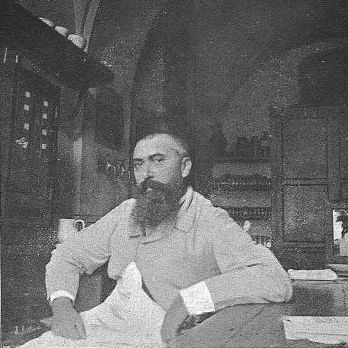
Before jumping into Carl Jung and Analytical Psychology, there were a lot of precursors that informed his theories on psychological depth in humans and unconscious reactions. Kind of like the Presocratics before Socrates and Plato, these scientists of the unconscious were precursors for Freud, Jung, and many others.
Studies in Hysteria - Sigmund Freud and Josef Breuer: https://rumble.com/v1gtdvl-studies-in-hysteria-sigmund-freud-and-josef-breuer.html
The Discovery of the Unconscious - Henri Ellenberger: https://rumble.com/v1gtd1r-the-discovery-of-the-unconscious-henri-ellenberger.html
It's clear from the precursors in the 19th century, that authorities looked at mental health, sexual development, and morality based on imitation, and the way to control society therefore was to ban examples for imitation that were deemed corrupting. Charles Féré provided a good summary, albeit in a blunt, brutal and uncompromising Darwinian style. "Books about the sexual instinct and its anomalies have often been denounced as dangerous to public morals." To get books translated and published from the continent into English, that talked about sexual development, was difficult in Britain because those books were considered, "obscene and tended to corrupt the morals of Her Majesty’s subjects."
In response Charles supported knowledge over ignorance. "Truth and science are never immoral but it cannot be denied that the narration of facts relating to sexual physiology and pathology, if their real significance is not pointed out, may be the cause of perversions in the case of predisposed subjects. The danger appears more serious to those who think that normal individuals may be perverted under the influence of environment, and yet more serious when the sexual instinct is represented as an uncontrollable instinct, which nobody can resist, however abnormal the form in which the instinct may reveal itself."
Through knowledge Charles felt that conventional morality could still be upheld, though with a strong control against those who deviate from the norm. "The evolution of sexual instinct shows us that it is subject to the necessities of environment, and that it has played a principal part in the development of morality. The history of sexual perversions proves that they are only developed in individuals who differ individually and in their descendants from the normal type, or whose condition is pathological." Sexual development to Charles was hierarichal in that the ultimate goal is a Darwinian preservation of the species and social cohesion. "Free-will is denied by science; but the necessity of individual acts implies the necessity of social acts. If a man's acts are only reactions from the forces of environment, the same rule applies to commonwealths as to individuals. But the absence of free-will does not connote absence of responsibility, which is a necessity of social preservation; nor does it connote the absence of individual liberty, which is necessary to the progress of humanity. The sense of responsibility to society is most beneficial in developing the control of the instincts. As a matter of fact there is no reason why sexual acts should escape responsibility; and they do not. Nature and society unite in eliminating perverts and favouring the normal."
Early psychology was developed by seeing patterns in families, mating, marriage, and the dissolution of family units. To make a cohesive society, certain hurdles of individual interest and social interest had to be bridged. "Instinct is characterised by a definite hereditary activity, which is not acquired by personal experience; it thus differs from habit, which is the result of individual acquisition...Instinct is nothing but a complex reflex: it is called into play by exterior stimuli which awaken a hereditary potentiality. It is often said that the natural activities of living beings are innate, but if this statement implies that such activities arise without excitation, it is obviously false. Nurses are aware that children do not seek the breast without previous experience. As a general fact, the instinctive activities manifest themselves at first in a more or less clumsy way, and require to be perfected by habit."
Because children aren't completely inborn with adult capacities, it requires the function of parenting. "Imitation plays an important part in the evolution of instinct by preparing it for its development. When a young bird imitates the flight of its mother and succeeds at the first attempt, it is because the mother stimulated its activity, but it could not have learnt by itself all the details of the method of flying. The history of mimicry, especially among animals whose intellectual growth is rudimentary, shows that imitation is a biological phenomenon. The tendency to imitate is based upon an innate and constitutional inclination to find pleasure in reproducing the acts of others...Imitation is therefore the more easy in that the subject is prepared by congenital aptitude to reproduce the act. Intentional imitation can only occur if there exists a previous experience. But the sight of a movement may determine its reproduction, independently of the intention to obtain the unknown result of this activity. This is the phenomenon of psycho-motor induction; its effects are indelible."
Yet, there's a biological formation that allows one to be more talented when it comes to skill acquisition, so the learning process is made smoother. "...The intelligence acquired by one generation seems to be acquired with less effort in the following generations, as if an acquired modification prepared the way for a congenital variation, or determined a congenital plasticity—an aptitude for being modified by experience." Féré hinted at what later psychologists felt was dormant in the unconscious, which was an archaic mental inheritance. "Amongst adults, impressions produce the representation of similar or of associated impressions felt during youth. This is what is called memory. Amongst young persons, impressions appear to call forth representations of impressions which go back to the childhood of the race and are hereditary recollections, which Plato believed to be 'memories of a former life,' and which Descartes termed 'innate ideas,' although they only appear as a consequence of exterior excitation, nevertheless do not seem to be acquired by the individual himself. He has inherited potentialities which can only be awakened by exterior excitation; but exterior excitation alone cannot awaken them, apart from constitutional conditions."
Confusion arises when there's an inability to differentiate habits from instincts. "Habit may be regarded as an activity based upon congenital instinct, which has been modified by acquired experience. A short experience is often enough to establish an association. The repetition of activity which is determined by individual experience results in an automatism which is the same as instinctive automatism. Habit is a second nature; and whether automatism of instinct or automatism of habit be in question, the appropriate excitations bring about a state of instability which only ceases with the performance of the habitual act. Impulse arises in this way."
The way to differentiate the two is to notice talent that allows a more quick development of habits, whereas intense practice may yield only small improvements. Developing youthful skills also lays the concrete foundation for further recall from the adult brain. The guardrails are developments that move away from ancestral survival. "It is in the plastic period of youth that the mind plays the greatest part in producing automatism of habit. The more intense the congenital predisposition, the more easily the automatism is developed; the older the habit, the keener the impulse to yield to it. The power of choice amongst young persons is aided by the inclination (which is especially marked in those possessed of strength and energy) to move about, to see things, and to find out about them. The overflowing exuberance of young people is favourable to variation: it is combined with a plasticity which helps adaptation, which can only depart slightly and slowly from instinct. It cannot run counter to ancestral acquisitions that have become instinctive because they were advantageous to the race." The difficulty is to go against the instincts because of the ego effort needed to provide a counterpressure. "It is difficult for habit to oppose instinct with any prospect of success. For, instinct is transmitted together with the somatic constitution, and, being bound up with the bodily structure, causes men under the same conditions of environment to act like their ancestors and like all individuals of the same organic type."
The hierarchy of instincts is to develop three skills: survival, sexual reproduction, and harmony with social groups. Each individual develops them more or less depending on the circumstances of the world, for example, if there's war, peace, prosperity, or scarcity. The instincts can also be satisfied more or less depending on environmental circumstances. In youth and old age, there are more limitations that lead one to abandon one or more instincts towards the individual, a rearing or dotage. "An instinct which is useful to the species can only establish itself if, under given conditions of environment, it can be reconciled with the interest of the individual. As sexual reproduction is a condition which is indispensable to the continuance of the species, the individualistic instincts must be subordinated in a certain degree. And as social instincts develop, there is bound to be an analogous effect upon the instinct of reproduction."
Instinct can make things easier when choosing a sexual partner, where confidence becomes less needed since a comfort of familiarity with certain personalities makes seduction mutual. The sexual compatibility may also harbor unconscious benefits for society. "It has been recognised that sexual choice is unconscious (Chamfort, Schopenhauer, Hartmann, Delboeuf, etc.), and many go further and admit, with Schopenhauer, that love must be regarded as an instinct which impels to sexual union two beings, whose coition, in consequence of some special fitness, would result in progeny most suitable to the interests of the Species. The conformity of sexual selection with the interests of the Species may be the characteristic of physiological love; but it is not conscious. This conformity of choice is not limited to a single union; progeny suitable to the interests of the species may be begotten by the same person in coition with various other persons. Although in some cases love necessitates systematisation, still it is not indispensable to the interests of the species. If each woman were only fitted for one particular man, and vice versa, the aim and object of nature would probably never be attained, and the species would already be extinct."
From a Darwinian perspective, pathology in fitness and survival leads to bad marriages, dissolution, and a lack of fitness for future generations for Charles. If pathological types don't create a new generation, typical of proto-eugenicist views of his time, this is a good thing for Charles. In his book The Evolution and Dissolution of the Sexual Instinct, there are copious descriptions of low levels of sexual development, with rudimentary masturbation, fetishes, wrong object choices, involving idiots and imbeciles. In those days, idiots and imbeciles were equated with low IQ and with criminality, and a lack of impulse control. The control of impulses is required to direct sexuality to the heterosexual object and produce another generation. Anything outside of that in those years was considered degeneracy. "It is astonishing to find that invalids, madmen, and idiots are rare among savages and barbarians. It is not because none such are ever born; but they perish through want of care. The sympathy of civilized peoples encourages misery by favoring the survival and reproduction of a great number of degenerates, constituting a social burden which is increased by the tendency to be lenient with our criminals." Charles then described what the world was like before social work, where everything is measured by social burden, which can be dangerous when the definitions are too general and open to atrocity, which at that time they called "social-hygiene." "Legal measures, that strengthen the motives for not yielding to impulses that are hurtful to the community, are not only justifiable but needful...Responsibility is no less necessary to social evolution than individual liberty." Now this would only make sense if you are talking about direct damage to people, not an abstract "society." Naturally, you wouldn't want criminal minds and low IQ types to follow a vocation of brain surgery and let them loose on hospital patients. You would have them work in appropriate jobs for their level, and there would have to be at this time, which there was much pressure then, to provide social services that balanced their dignity with the protection of others. Predicting the brutality of the early 20th century, the seed was already there in Darwinism.
This is the 1800s unfortunately, and Charles conflated homosexuality at that time with bestiality and other perversions, and he disliked movements in Germany that increased sympathy for homosexuals. "Since the writings of Ulrichs there has grown up, in Germany especially, a sympathy for inverts and a public opinion in favor of the restriction of the penalties in connection with sexual perversions. Is this sympathy justified? Whether sexual instinct be considered as the foundation of moral evolution or a necessity of the race, it must be admitted that its perversions which are negative of sex, in their methods and their purpose, are harmful and dangerous, because they are remarkable for impulsiveness; and imitation is the more to be feared as the tendencies can be less restricted...It is not because they are in a minority that inverts are harmful and immoral; it is, on the contrary, because they are immoral and harmful that they will remain in a minority, and that the majority will take care to protect itself against them and their example." At the time, both arguments were used when it came to the origin of homosexuality being either habit or constitution, and this muddied up the waters, especially since there's usually a mixture of both constitution and environment in everything. "If it is admitted that habit and example may by themselves alone develop inversion, the mere contact of inverts is a social danger." If homosexuality was from constitution, then there would be no children arising and therefore no problem for Charles. If it's imitation, then the desire for society to apply control measures becomes sought after. "If gratification of the instincts cannot be a crime, there is no such thing as crime; 'all beings are irresponsible.' If a system of social hygiene is imperatively necessary, the aim of the law should be to ensure such hygiene and to repress everything injurious to society without distinction of persons." At that time, conversion therapy was a brutal and crude form of conditioning where you would try to strengthen craving, which Freud called libido, by simplistically introducing new sexual object choices, and use the withdrawal of rewards, or the threat the punishment, as a deterrent, but there was always a problem with people who had no such heterosexual cravings. "Suspension, by means of substitution, of perversion has been regarded as a method of treating perversion itself. The invert, [or homosexual,] who has gone through the whole system may gradually find pleasure in relations which used only to fill him with loathing, and think only about such even in his dreams. The same thesis has been utilized by modern physicians and it is very true in regard to normal subjects. But does it also apply to degenerates who possess abnormal emotivity? It is doubtful even about the attitudes and gestures which are subject to the will; whereas in perverts the attitudes escape the will, and are hardly ever conscious. This kind of treatment, therefore, is of very limited use."
What they didn't know at the time is that suppression is to be used when someone is worried about consequences towards others and oneself. To be authentic is to accept what gives you pleasure, unless it goes through the boundaries of others, or it harms one's health. Repression is there from authority figures to protect society from criminal behavior. To want to change a desire to make authority figures, such as religious leaders, economic leaders, government leaders, celebrities, parents, friends, etc., happy, is replacing one pleasure for another very particular one: Narcissistic supply. Since this is totally inauthentic, the next step was to have lifestyles that didn't conform, and allow them to exist within boundaries to have a live and let live situation. Yet there's always a need for unconscious people to change others. Unfortunately, because people imitate others and are tempted by seeing open savoring that others demonstrate, a splitting of all good and bad can occur and interfere with the splitting of all good and bad aimed at oneself. For example, if someone saw a homosexual couple embracing and kissing in the street, a quite many people may imitate the savoring in their mind and go into a self-hatred and hatred towards the role models for inspiring this desire. A new imperative may arise to change this couple and prevent them from being a savoring example that is deviant from norms. The role models in this case could also see the envy in others and see their own latent homosexuality and try to coax it to come out even further. People feel strength in numbers and naturally want to increase the size of their communities and exchanges. This makes sense, since acts of masturbation are attempts from people to get relief with their own homosexual equipment. It just has to move from a component instinct to an object choice.
Narcissistic Supply - Freud and Beyond - WNAAD: https://rumble.com/v1gveop-narcissistic-supply-freud-and-beyond-wnaad.html
Case Studies: The 'Wolfman' (3/3) - Freud and Beyond: https://rumble.com/v1gulsf-case-studies-the-wolfman-33-freud-and-beyond.html
Sexuality Pt 3: Homosexuality - Sigmund Freud & Beyond: https://rumble.com/v1gtqk5-sexuality-pt-3-homosexuality-sigmund-freud-and-beyond.html
Object Relations: Harry Stack Sullivan: https://psychreviews.org/object-relations-harry-stack-sullivan/
Maestro Trailer (2023): https://youtu.be/d1wZy_L-j8A?si=a6XAo6R3uRDzboZk
Humans always had an element of incorporation, which is sampling, and many people with differing values like to try to go beyond boundaries to coax their version of sampling in others, which is a form of projective identification. It's ultimately about evangelizing a habit identity. This led and still leads to internal conflict with conscience and external conflict with role models. It leads to splitting where people are viewed as all good or all bad. It also exposes the inherent bisexuality Freud and Fliess were on about. This "normality" that Charles was saying works with conversion therapy is only in the realm of bisexuality where craving is capable of fluidity between masculine and feminine object choices. As Melanie Klein learned later, splitting takes both time and repeated reflection to have objects and their characteristics of good and bad appear at the same time giving it an accurate perception immediately. This can be true about any objects in the environment that are up for judgment. For example, people who love cigarettes, alcohol, drugs, etc., see it as all good until they are notified of consequences. Notification of health risks may not be enough, so the person may have to go through health challenges to finally integrate the perceptions. At some point the object becomes a mixture of good (pleasure) and bad (pain), and both arise at the same time so that the older time lag between pleasure and consequences diminishes. Now some people may be able to mitigate the consequences, like their genetics allows them to smoke and have a long life, or one accepts that one will die eventually and it's not necessary to live as long as possible. In some situations, the consequences aren't really that bad and just another lifestyle. This is also why so many people have to join organizations to provide social support, with examples, to try to bolster imitative influence that one needs as a crutch. Those who are more integrated, which usually means older, more experienced, etc., don't find they have a lot of impulses to imitate and rarely get carried away. They can be around very different people and not feel a strong pull to imitate.
When splitting is resolved, it's much easier to say what is authentic for oneself because the good and bad arise at the same time whenever an example manifests in consciousness. Yet many people need to go through an experience to truly learn. This is partially because the information communicated is not accurate or believed at the time. It can also come from omnipotent feelings arising from the illusion that slow changes won't eventually lead to consequences, or because the medicine or healthy food tastes bad, therefore it's not worth waiting for the positive results later. To be sympathetic, this is very hard for most people. To read consequences in literature and to act only on that takes quite a bit of reflection where people imagine with their projective identification abilities, and put themselves in the shoes of a sick patient. The reflections would have to be so realistic and detailed, with no agenda or manipulation, that emotions related to consequence arise naturally. Here Freud and other psychoanalysts would call this reflection working-through and repeating. Without that, many people will have to go through those consequences before they feel dispassion for what was originally thought of as all good, or accept the loss of a good enough relationship that they undervalued as all bad, for example. This is why influence in politics or awareness campaigns can have limited effect to change minds. Yet those types stuck in extreme splitting, who have an irresistible urge to change others, will use any method known to them until all of this dawns on them: It's better to have boundaries and to live and let live. That is the realistic freedom a society can attain.
Object Relations: Melanie Klein Pt. 2: https://rumble.com/v435lsq-object-relations-melanie-klein-pt.-2.html
Poor Things | Official Trailer: https://www.youtube.com/watch?v=RlbR5N6veqw
To continue here in Charles' epoch, they even tried hypnotism to change sexual variants with limited results. People authentically change when they have realistic examples that they crave to imitate, because they see enough pleasure and goodness there for themselves. "Hypnotism has been called to produce a change of aptitudes; but, as M. Bernheim himself had to admit, all patients are not hypnotizable—'though some can be put to sleep, the majority cannot be.' In most cases we have to be contented with suggestion in the waking state and with training, which is not always very effective...It is known, too, that even persons who are most sensitive to hypnotism are able to resist suggestions that are opposed to a deeply rooted feeling." All these methods go against people's willpower and studies 100 years later have shown that people make changes only when they are able generate cravings on their own, as described above. The weak-sauce "solution" for Charles was pure repression, including no masturbation, and even those who superficially became heterosexuals, he was worried about their fitness for procreation and social hygiene for the next generation. "I have already maintained that the best solution of the matter is continence, which banishes the dangers of perversion. But should the abnormal person after being treated by the substitution method, and having become capable of normal connection—in fact, after being apparently healed—be regarded as a sound person, fit for reproduction? That is a point which is neglected by the writers who have published accounts of marvelous cures; they do not tell us if their patients have become worthy of reproducing the species. Everything tends to the opposite opinion...Treatment should be confined to the prevention of [masturbation] and the repression of abnormal tendencies...To persuade congenital perverts to marry, or to have extra-conjugal relations, is to act contrary to the natural law of instinct, the law of utility, and the law of evolution."
MONSTER Trailer - Hirokazu Kore-eda: https://www.youtube.com/watch?v=JYIRWnnatBU
Yet Charles tried to relax some of the harshness by accepting that with biological constitution, it's not so easy to determine such things, and if homosexuals don't reproduce, then it works itself out automatically if you are Darwinian. "Reproduction of degenerates cannot be universally proscribed, in spite of the fact that among the descendants of persons who rank among degenerates there are persons who are useful to society. This justifies toleration and sympathy on our part. Those who show signs of sex-dissolution are noteworthy among degenerates. It is not a doctor’s duty to combat by unjustifiable methods their natural tendency to elimination...Seek to restore the proper physiological conditions. When the evil tendencies have vanished, by means of physical treatment, there is nothing to be done but to let matters go as best they may, whatever ideas may be had as to the dangers of a defective generation." Charles ends up being stuck between saying that perversions must be repressed to avoid imitation, but there is a danger of having people who are converted to heterosexuality in getting married and passing on imperfect generations, but then it's not so bad because any future "degenerates" who don't receive treatment will not procreate anyways. The sticking point with him is the power of imitation, and how so called "normal" types could be influenced. The problem with social hygiene is that if treatments lead to someone that is only pretending to be "cured," because the treatments are only about narcissistic supply, to avoid social ostracism, then they will fail. Any proper treatments will require enough free association for people to find what is authentic for them, regardless of the preferences of the psychologist. Craving has to come out of the body of the patient naturally.
So the concerns for Victorians were to avoid the ignominy of not being able to reproduce and not becoming an excellent sexual specimen of the human race: a pervert, or a lousy lay. Those interested in perversions at that time were seen as biological errors and these concerns developed into some strands of psychoanalysis later in the 20th century with castration and Oedipus fears of intimidation and inadequacy in bed, for example, premature ejaculation or being a frigid or a barren female. Sex was also not supposed to end with the sex act, or be a focus only on sexual pleasure as the end goal, but it had to include the social instinct for families and communities to become the real deal. "Degenerate types of mankind seek each other out and find each other; and it is quite indirectly that their systematic attraction is in conformity with the interests of the species. It hastens their elimination. In the case of these individuals, the attraction often arises in the shape of that impulsive anguish known as 'love at first sight' which constitutes a symptom sooner than a manifestation of the normal instinct." The stability of the families leads to stability for societies and whole countries for Charles. "Among degenerates, sexual preoccupations are often in inverse ratio to their sexual powers. Nations that perish through sterility are remarkable for licentiousness. It is the same with individuals. Hysterical attacks have been attributed to sexual preoccupation; but such preoccupation is of itself a symptom of something amiss."
The next level of skill constitutes harmony between couples so that parents last long enough with their children to raise them to adulthood. After criticizing low intelligence, he begins attacking over-intellectualization, leading to a "salt of the earth" type person who isn't too intelligent or an imbecile. "The more exclusive the intellectual factors become in sexual choice, the greater are the risks of dissolution; the slightest psychological antagonism may check physical sympathies. The saying that the best-loved persons are the most brutal—or the least refined is not without its truth; their means of attraction are of the most material and enduring nature. The value of a union cannot be measured by a few special qualities, but rather by the harmony that may exist between imperfect individuals. The harmonious union of mediocre persons often results in progeny superior to that issuing from the discordant union of individuals endowed with higher qualities."
Phylogenetic inheritance is the realistic form of immortality and it requires that generations reduce unnecessary trauma and increase fitfulness to manifest healthy descendants. A passing of the baton, free of obstacles to development, with a patience to delay gratification. "The evolution of sexual instinct points to chastity as its end, and those who keep chaste are the best spouses and the best parents; they escape the diseases connected with promiscuous intercourse, and they have offspring who are free from predisposition to vice and degeneration. Moreover, they act in conformity with their own physical and moral interests in avoiding the risk of transmitting contagious diseases to their spouses and to their children, as well as the danger of sterility which is attached to such maladies. Lastly they escape the troubles arising from the procreation of illegitimate children, from the desertion of the mothers of the latter, etc. Those who, in consequence of defective up-bringing, have had to drink the bitter cup of experience in sexual matters, perceive clearly enough that they might have postponed for a longer period a gratification which they desired rather from an unenlightened sense of amour propre than from any pressing need."
The need for willpower in psychology was omnipresent in the minds of earlier researchers. "The object of education is the mastery of the instincts; thus raising man above the animals." Charles then railed against prostitution and the spread of venereal diseases. At first he blamed women, but he accepted that men can't use the excuse of not being able to help sexual urges, since they are equal participants in spreading diseases. Anyone who can spread an STI must be responsible. "A revolution in morals can hardly be expected from mere recital of the history of evolution. But it may be said that those who assert that sexual impulses are irresistible, and who persuade young men that they can prove their virility solely by incontinence, and the more wild oats they sow the more they show their mental ripeness—such persons derive their ideas from the psychology of animals subject to periodic rutting-seasons, and not from that of civilised man." In short, controlling impulses is the human pathway towards morality for Charles. "The history of Oriental and Roman despots proves that they were both cruel and lustful."
Because everything is interdependent, the survival of a social group needs strength in all areas of life for Charles. "The evolution of sexual instinct shows that the individualistic instincts gradually give way to the social. Social sympathy has its origin in conjugal and family sympathy, which itself is based on parental sympathy and love of children. Adaptation to environment is founded on a state of equilibrium established between these various sympathies. The individual can only continue living and reproducing if he is in harmony with the milieu. All excess and all insufficiency are proofs of a state of unfitness." Despite the lack of sympathy for those who didn't conform to Darwinian principles, the empathetic solution for Charles is to accept that it's up to you, and you must figure it out. "Though the success of the day and hour may belong to the best and strongest fighters, the fitness for survival and the future belong to him who best knows how to adapt himself to the most precarious conditions of life."
In the 19th century, any psychological understandings, mostly rooted in philosophy, were to be conflated with the role of a doctor. Doctors who excelled at that time knew to look at psychological factors beyond physical maladies. This was before the time of social workers as a separate vocation. "It may seem strange to treat the absence of conjugal harmony and disorder as symptoms of disease. Still, a doctor who should make it his habit to inquire into the psychological antecedents of neuropaths and their ancestors, and to study the effects of family discord on mental evolution; on the development of illnesses in general, and of nervous and psychic disorders in particular—such a doctor might try his hand at a symptomatology of this conjugal discord which would be of interest both from the medico-psychological and the sociological point of view. By a study of the etiology of such discords, it would be possible to help in preventing them."
During this epoch, ancient influences in the mind were considered to be of lower development and not useful. It was called Atavism. It would be later with Carl Jung that those knowledges, albeit rudimentary, were necessary for people to develop new skills that required something rudimentary to start with. "When atavism appears in any given individual, animal or vegetal, it shows itself in characters lacking in the immediate parents of the individual, but which are actually possessed by beings which may be considered to have been among its ancestors. Atavism includes at least two groups of facts which should be kept distinct. It is well-known that plants perfected by culture revert very easily to the primitive type if they are not looked after, or if their nourishment is unsuited to the condition they have reached. One can imagine, and even reproduce experimentally amongst these plants alternations which are like the alternating generations. That is a case of complete atavism, if I may use the phrase, which reproduces beings capable of evolving like their ancestors...Atavism does not appear in this shape in man. An individual scarcely ever reproduces an ancestor completely. As a rule, there is a dysharmonic, or rather partial, reversion in connection with one or several organs, which causes unfitness of the whole organism for its actual milieu. Such an individual would be also quite unfit to live in the milieu of the ancestor whom he anomalously reproduces." The lack of development can't always be attributed to heredity, but instead to missing developmental stages in life. "Degeneration is characterised by a congenital or acquired diminishing of the general or partial vitality...[and] frequently manifests itself at first in the diminution of the processes relating to choice or to control." If there is to be an atheistic religion coming from this it is an acceptance of an unconscious influence in life from the past that manifests as an extremely powerful determinism, and then the conscious personality tries to predict what progress is for those subsequent generations.
Alfred Binet and Hypnosis
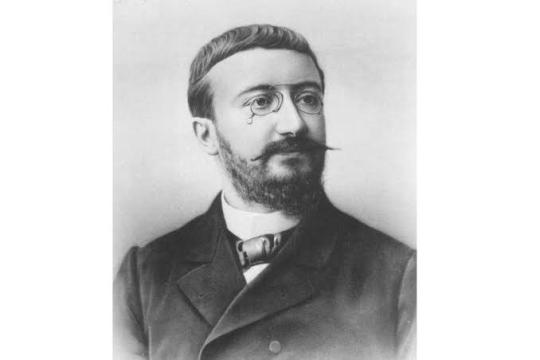
Because mental pathology was always accepted as being real, there was always a need, via religion or philosophy, for a "...medicine for the imagination." Charles Féré as well as Alfred Binet, wanted to investigate ways in which mental content could change the biological reactivity of the mind. This was done at the time via "...suggestive therapeutics. The process is as follows. Influenced by a persistent idea, suggested by external circumstances, a paralysis is developed. The physician makes use of his authority to suggest the idea of an inevitable, incontestable cure, and the paralysis is cured accordingly. This cure, as well as the development of functional disturbance, was directly effected by an idea. An idea may, therefore, be, according to circumstances, a pathogenic and a therapeutic agent...Diseases caused by the imagination—that is, produced by a fixed idea—are real diseases, and, at any rate in some cases, display undisputed objective symptoms." One of the main methods used at the time was automatic writing and hypnotism. This led to theories of a double consciousness in humans: a conscious and unconscious mind.
Through many tests, these early theoreticians found that the short-term mind could resist suggestions from others, but when it was overloaded, or if it was distracted, it would free up unconscious contents and open up for suggestion. "Suggestion, when successful, consists of an idea impressed upon a person and reigning dominant in the consciousness of that person; reason, critical powers, and will are impotent to restrain it. If a subject believes he is holding a bird upon his knee, in consequence of the simple fact that I have told him so, the conclusion evidently is that he has lost the power of controlling, examining, and judging the ideas given him. For suggestion to develop itself, accordingly, it is necessary that the subject's field of consciousness do not contain too many antagonistic ideas. Now, it is exactly this psychological situation that is found realized in the duplication of consciousness. As a consequence of such a phenomenon of bipartition, each of the consciousnesses occupies a more narrow and more limited field than if there existed one single consciousness containing all the ideas of the subject. This retrenchment of the field of consciousness constitutes what is called suggestibility."
The way to overload the mind in these tests was to give reading or mathematical exercises so that suggestive stimuli could be introduced and mimicked without the control function interfering. "When a person is asked to do two things at a time—to read a book, for example, and to execute some manual task—two motor impulses are evoked which start from the same personality, from the same focus of consciousness. For it is the same person that is charged to do the two things at once—to divide his attention and will between the two things. This coexistence of the two operations must evidently make each separately less perfect. The more attention each exacts because of its complexity, the more both will have to suffer from being carried on together...In the case where a person performs at once a mental addition and a muscular act, let the first operation be called a and the second b. Observation shows that each of them is prejudicial to the other, tends to inhibit it. Let the automatic activity of the hand be called c. There is in each subject a power to perceive this activity and to suppress it by holding the hand motionless. Let this operation be called b. The operation b then can inhibit c. But occupation of the subject with reading, by provoking the operation a, prevents him from inhibiting the movements of his hand; that is to say, a is permitted to inhibit b, and this prevents b from inhibiting c. There is here, inhibition of a cause of inhibition."
Pierre Janet and Mental Hygiene
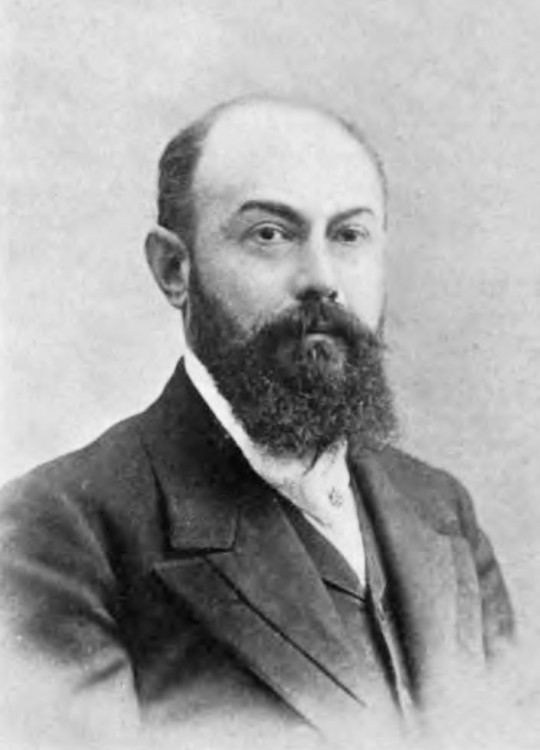
These understandings could of course be used to manipulate people, to create effective government propaganda, or insidious advertising, but for Pierre Janet, it was an opportunity to do therapy. For hysterical patients, who became relatively automatic, unconscious, and unaware of their behaviors, correcting beliefs that were buried in the unconscious and repeated, hence idée fixe, suggestions that grounded the patient towards reality would be an easy enough operation, but with obsessive patients, Janet found it more difficult. "The immediate implication of these obsessions is described by Janet as a characteristic self-disgust. It is difficult, he says, to contrive a single word or phrase that will resume and express this attitude. It shows not merely as remorse but as a species of contempt for the subject's own mental attitudes and actions. Religious writers have used the expression 'conviction of sin' to describe this; Freud speaks of 'conviction of guilt' as an invariable character of the mental background of obsessive thinking. The patient is continuously possessed by the idea that what he is, and what he does, is thoroughly worthless. Everything he does gives rise to self-torment and self-accusation; even when he is not compelled to self-punishment and self-torture, he will decry his own motives and humiliate himself. 'Such patients are obsessed by the thought of madness, claim that they are insane, and, what is worse, feel themselves urged to behave as if they were.' The patient is perfectly well aware of the reason why, in his estimation, he should suffer such a symptom. Moreover, the conviction of sin enters into the situation as a determinant."
The fixed ideas are more about one's identity rather than distorted problem-solving. Every so often Janet required much more time to finally see these ideas manifesting in therapy, especially with obsessive patients. "This type of thinking becomes accentuated in a crisis until it becomes an internal chatter, which may easily seem to be entirely meaningless at the beginning of an interview. Nevertheless, if the patient is permitted to talk freely to his physician, after a period of some hours the pattern begins to reveal itself. John, a patient of Janet's used to beseech him 'simply to, listen' in order to comfort him. And for a period of an hour and a half or two hours he would pour forth a stream of apparently random associations without stopping for a moment. At the end of such a session he confessed himself comforted and relaxed 'he had exhausted in words an agitation of which he could not otherwise rid himself.'"
A functioning human just functions until they don't. "Janet maintains, and rightly, that the best indication or symptom of normality is the ability every physically fit person possesses of turning his attention, immediately and easily, to a topic or object presented for his consideration by his surrounding. If he is ill, obviously his capacity to do this will be immediately affected." Some of these are situations that involve congenital origins but Janet knew that the habitual side could also be affected. "Janet [went] on to show that this incapacity in the great majority of instances is due to a failure to develop in infancy and adolescence those social skills that are necessary to the most ordinary human communication with other people...Even though some one incident during infancy may be significant for the understanding of an individual failure to develop social skills, nevertheless, the physician must take account of the entire infantile and adolescent history, since only the long range history will account for the failure to develop the very ordinary capacities for easy human interrelationships that characterize the normal person."
In The Psychology of Pierre Janet, Elton Mayo summarized that in "every moment of our waking lives is an adaptive moment. Continually we discover that some one or other of our customary perceptions or ideas is inadequate. The development of skill therefore demands additional experience and reconsideration of the inadequacy. This moreover affects not only our mental life of active effort, it affects also those moments of relative passivity that we characterize as reflective thinking...The importance of reflection to the development of knowledge and skill was strongly emphasized by Janet in lectures and in conversation...It is by reflection, Janet says, that we give unity to our experience. In moments of reflective thinking, our attention is withdrawn from the outer world, and we are preoccupied with some problem that we may, if asked, find difficult to define. But this at least can be said, that at such moments some recent experience has caused us to doubt the adequacy of one of our conceptual schemes, or systems of ideas that we have been accustomed to use. And at such moments we are, whether we know it clearly or not, occupied with an endeavor to reconcile the contradiction or to decide upon a direction of inquiry that will throw new light on the apparent inconsistency. Reflective thinking, therefore, may be described as an inner act of attention, demanded by experience, intimately concerned with the systematic arrangement or rearrangement of our knowledge. This is what Janet means when he says that it is by reflection that we give unity to our experience." So the way to pop into a learning mentality with Janet, and if you include Darwinian understandings, it would be to accept that one is alive and needs to continue on living, regardless of past mistakes. If there is an adaptation problem, then one only has one option, which is to learn to adapt through reflection and then keep it simple by believing in action, and understanding that only adaptive action can make any real changes that are more harmonious with oneself and others. One also has to conclude that Janet's idée fixe, which includes self-disgust, is so rigid because patients feel that they are not worthy of change because if society knew more about them, they would prevent them from having those opportunities. In a social hygiene world of Féré's, that would not be an unsurprising terror. A therapist, as well as nearby social contacts, would have to allow enough forgiveness so that new behaviors could be engaged in with trial and error. If this doesn't happen, then a paralysis of self-preoccupation will continue.
For many psychological disorders, including obsession, "the person who shows symptoms is unable to put any finality into his reflective thinking. The conception of experiment, of trial and error, has eluded him; he is attempting to solve all the problems of living by sheer logic in situations where he has had little or no experience. He is consequently a person who is unable to give unity to his experience. He is preoccupied incessantly with persistent efforts to create a merely logical harmony in his thinking; and his misused reflective powers consequently inhibit his capacity for normal and easy attention to events about him. This incapacity limits the systematization of his responses to things, persons, and actuality. In other words, incessant preoccupation with verbal topics interferes with the development of his capacity to give attention to events. It is not surprising, therefore, that the obsessive lacks social and other skills." By realizing that reflection, and especially having a belief in one's actions, in the method of the French school, it is the only way to bridge the gap between the individual, sexual and social spheres.
The Psychology Of Pierre Janet - Elton Mayo: https://www.isbns.net/isbn/9780415730235/
The Evolution and Dissolution of the Sexual Instinct - Charles Féré: https://www.isbns.net/isbn/9781497826007/
Scientific and esoteric studies in Sexual Degeneration - Charles Féré: https://www.isbns.net/isbn/9781258912451/
Animal Magentism - Alfred Binet, Charles Féré: https://www.isbns.net/isbn/9781498062534/
On Double Consciousness - Alfred Binet: https://www.isbns.net/isbn/9781428622838/
The Hidden Self - William James: https://en.wikisource.org/wiki/The_Hidden_Self
Psychology: http://psychreviews.org/category/psychology01/
0 notes
Text
Anna O. y la cura por la palabra
Anna O. fue el seudónimo que usó Josef Breuer para referirse a una de sus pacientes más famosas, Bertha Pappenheim, una joven judía austríaca que sufrió una serie de síntomas histéricos tras la muerte de su padre. Breuer la trató con un método novedoso que consistía en escucharla hablar libremente de sus recuerdos, emociones y fantasías, mientras ella se encontraba en un estado de hipnosis o…
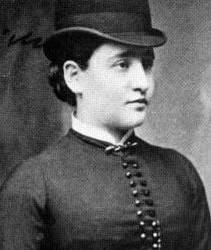
View On WordPress
0 notes
